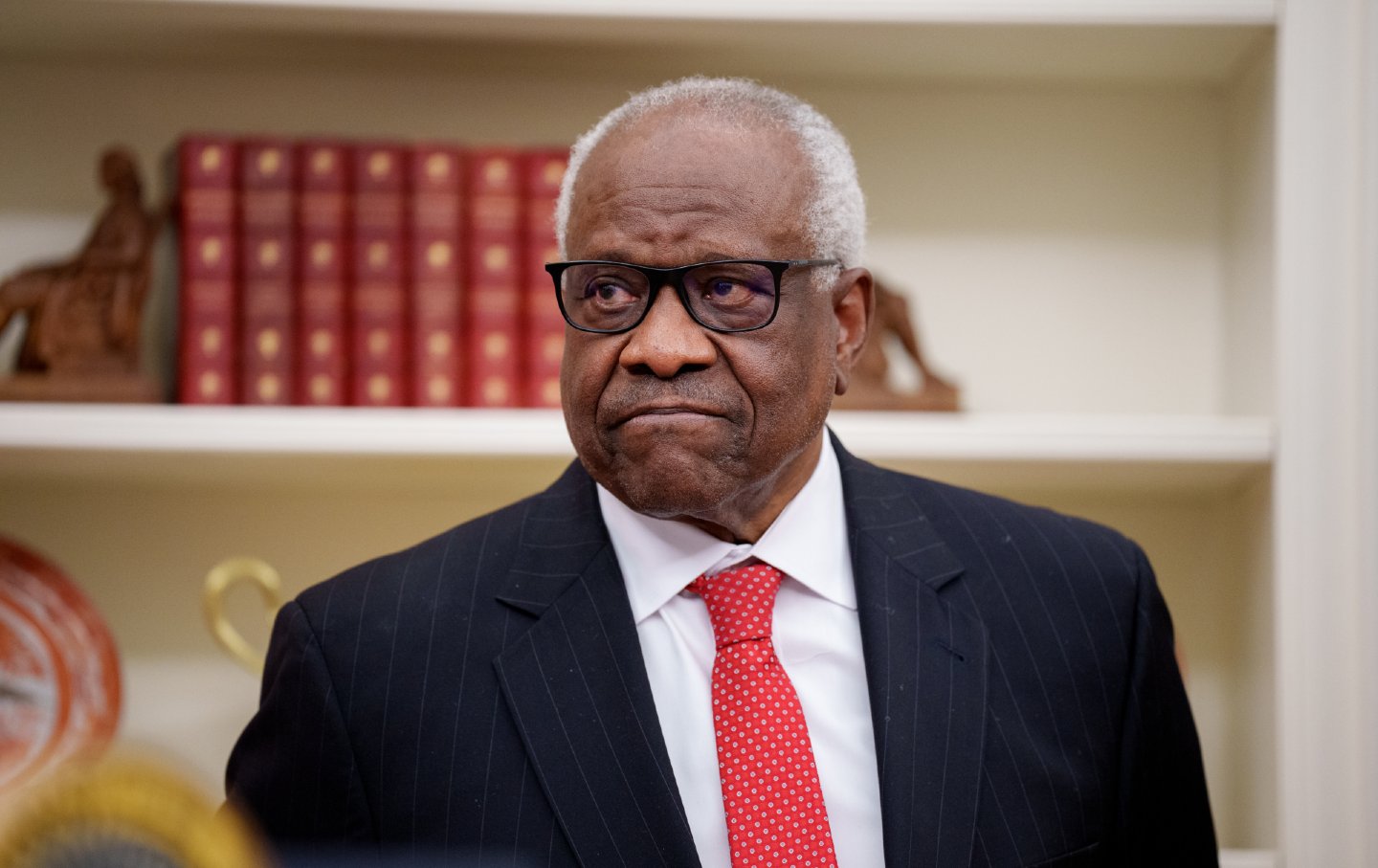
"He didn't say it in that way, of course. People would have noticed that. Instead, he couched his self-serving philosophy in legal jargon that will fly under the radar of most people, including journalists. Here's what he said: "At some point we need to think about what we're doing with stare decisis.... [I]t's not some sort of talismanic deal where you can just say 'stare decisis' and not think, turn off the brain, right?""
""Stare decisis" is a foundational legal principle in this country and all countries that follow a "common law" system. What it means, in simple terms, is that prior judicial rulings govern future judicial rulings. If a court rules, for instance, that "gay people have the same basic rights as everyone else in this country, including the right to marry other people," then that ruling is supposed to govern all future cases concerning the rights of gay people."
Supreme Court Justice Clarence Thomas expressed skepticism about stare decisis and argued courts should not treat precedent as an unquestionable rule. He said judges must think critically rather than mechanically invoking precedent. Stare decisis binds future rulings to past decisions in common-law systems. Past rulings protecting LGBTQ rights, including marriage equality, do not necessarily compel continued protection under his view. Courts can overturn precedent through legislation, constitutional amendment, or judicial reconsideration. Thomas's stance signals willingness to revisit and potentially reverse established rights and legal doctrines.
Read at The Nation
Unable to calculate read time
Collection
[
|
...
]